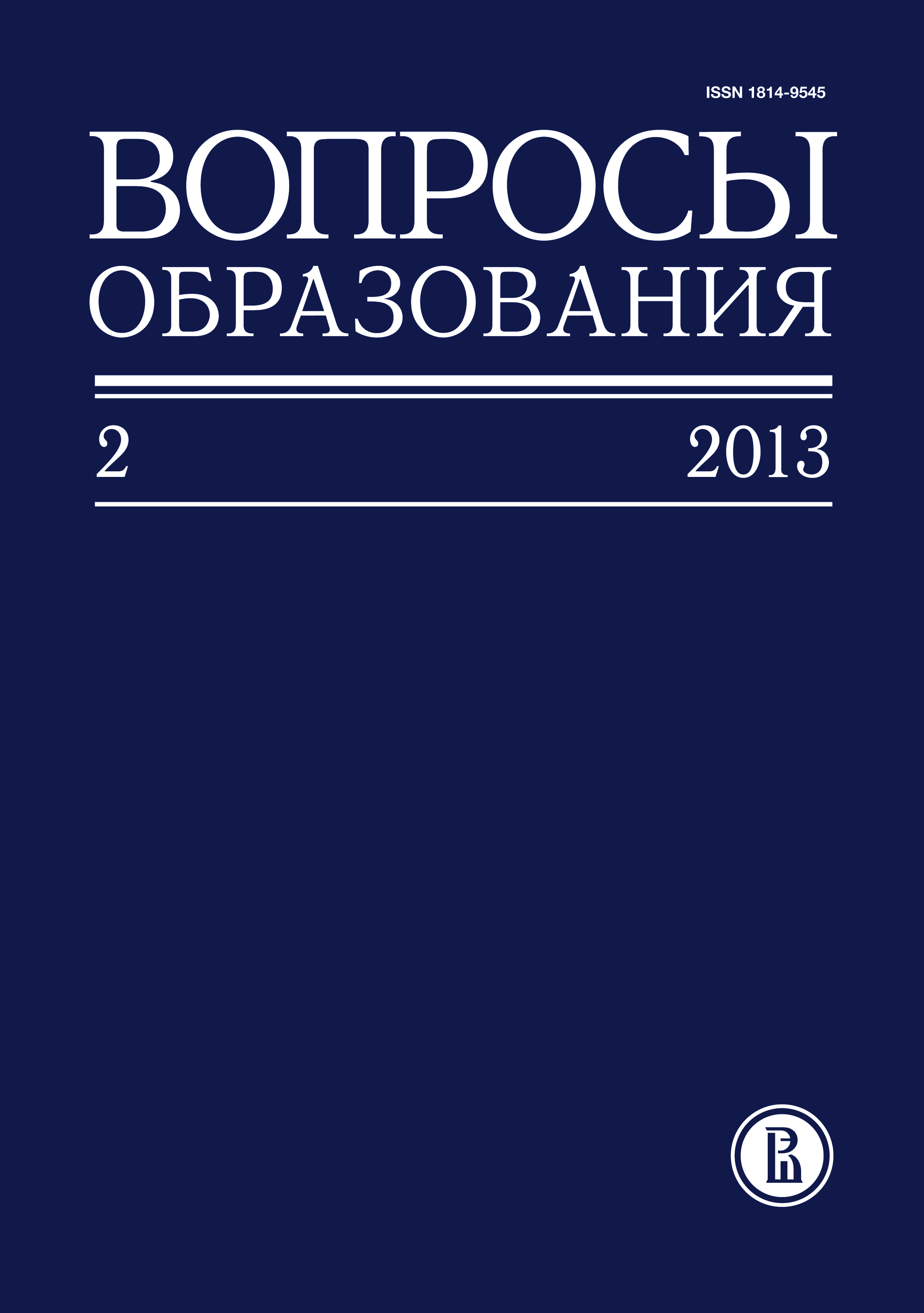Оценка результативности университетов с помощью оболочечного анализа данных
Аннотация
Абанкина Ирина Всеволодовна — кандидат экономических наук, профессор, директор Института развития образования НИУ ВШЭ. Эл. адрес: abankinaI@hse.ru
Алескеров Фуад Тагиевич — доктор технических наук, профессор, руководитель департамента математики факультета экономики НИУ ВШЭ, заведующий Международной лабораторией анализа и выбора решений НИУ ВШЭ. Эл. адрес: alesk@hse.ru
Белоусова Вероника Юрьевна — кандидат экономических наук, заведующая отделом методологии бюджетного планирования Института статистических исследований и экономики знаний НИУ ВШЭ. Эл. адрес: vbelousova@hse.ru
Зиньковский Кирилл Викторович — кандидат экономических наук, заместитель директора Института развития образования НИУ ВШЭ. Эл. адрес: kzinkovsky@hse.ru
Петрущенко Всеволод Владимирович — стажер-исследователь Международной научно-учебной лаборатории анализа и выбора решений НИУ ВШЭ. Эл. адрес: goroddt@yandex.ru
Систематизирован опыт оценки эффективности вузов в разных странах с помощью оболочечного анализа данных (DEA). Рассматриваются формулировки моделей оболочечного анализа данных. Описан опыт практического использования этих моделей применительно к вузам в Великобритании, Германии, Греции, Австралии, Канаде. Обсуждаются вопросы сопоставимости результатов и согласованности моделей.
Проанализирована специфика применения моделей DEA к оценке эффективности российских университетов в зависимости от их специализации. Проведен сравнительный анализ результативности российских вузов с учетом их ресурсного потенциала в образовательной и научно-учебной деятельности. Выявлено, что и классические, и технические университеты России обладают в среднем более высоким потенциалом в области образовательной деятельности, чем в научно-учебной. При этом технические вузы характеризуются в среднем более высоким научно-образовательным потенциалом (70–90% от возможного), чем классические (50–60%).
На основании сопоставления данных о результативности российских и зарубежных вузов установлено, что уровень эффективности российских вузов в среднем выше уровня немецких учебных заведений, сопоставим с уровнем австралийских вузов и ниже уровня канадских и английских университетов.
На примере российских вузов продемонстрировано, что расчеты результативности необходимо проводить для учебных заведений, сравнимых по профилю и базовым характеристикам. Оценка эффективности высших учебных заведений позволяет выявить их слабые и сильные стороны, и в соответствии с этим разработать эффективную стратегию их развития.








